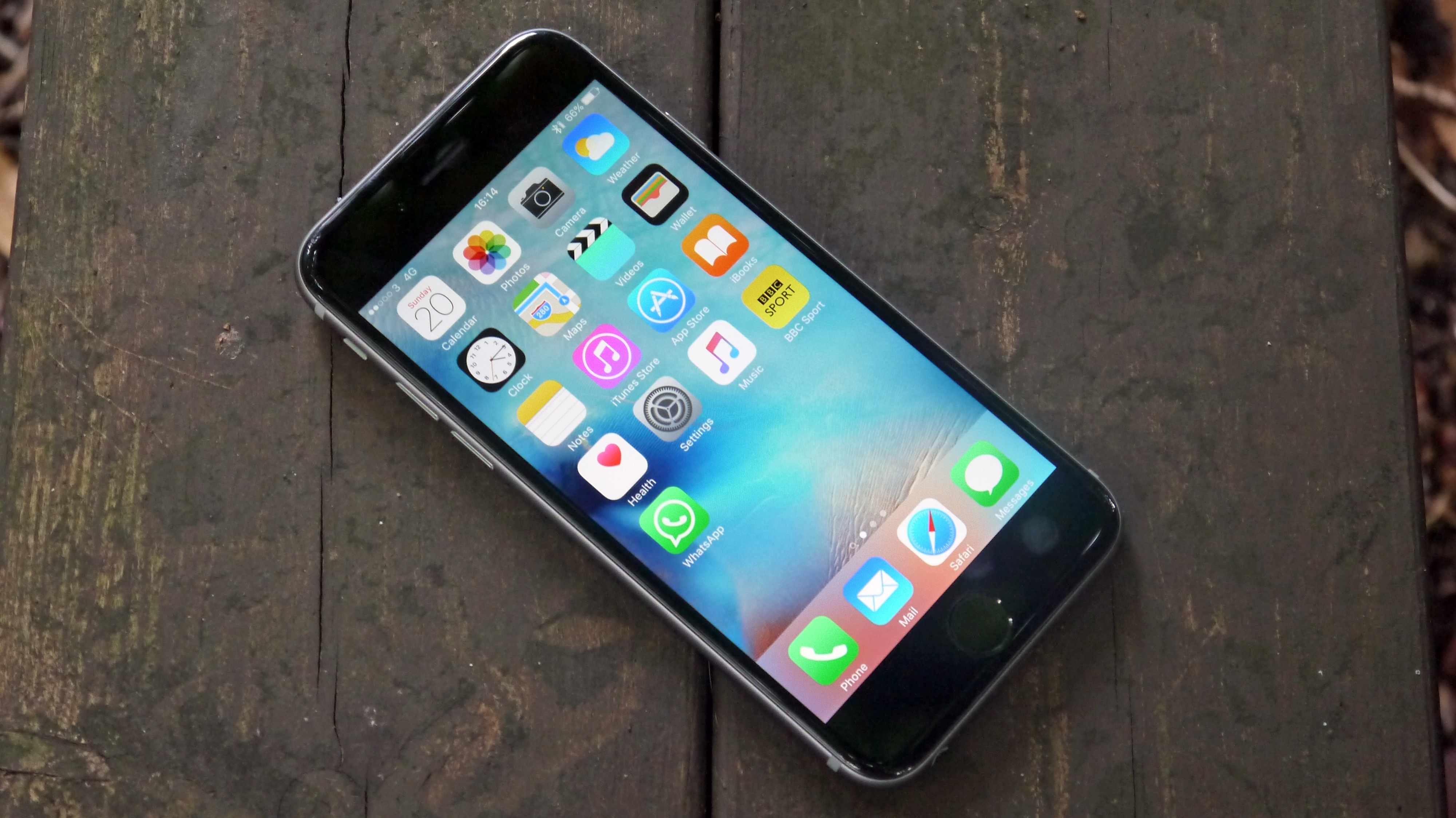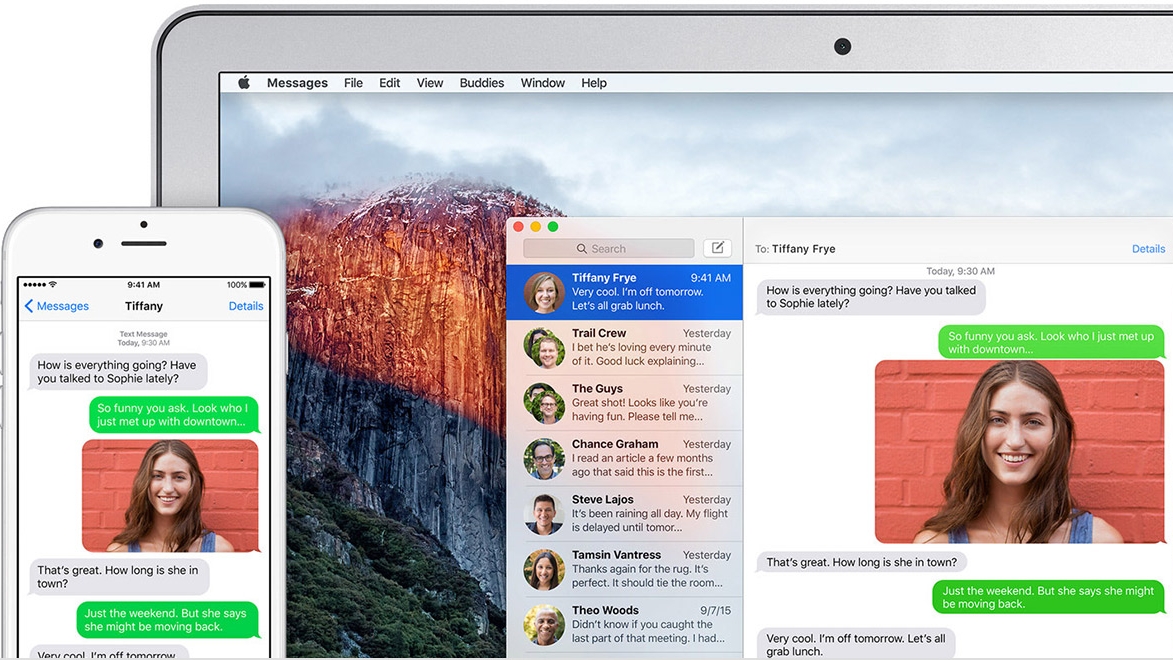5 iOS features we want in stock Android
Nougat is tasty, but these iOS features could make it delicious

Android has come a long way since its debut in the heady days of 2007. It's always been a powerful, open and customizable OS, but it's also now slick, polished and intuitive. There's a lot to like.
So much so that Apple has seemingly borrowed a number of features from it for iOS over the years. But there are some things that iOS just does better, or which Android doesn't offer, that we'd love to see in Google's mobile OS.
Here are five iOS features that we want Android to incorporate. If it ever does, we might just find ourselves in OS heaven.
Continuity

You can do a lot with an Android device, but if you want to move from your phone to a tablet or computer your options are suddenly a lot more limited. You can't easily call or text from your tablet or computer using your smartphone's number, for example.
There are apps such as Pushbullet which allow for some of these things, but nothing built into the core of the Android OS.
iOS, for all the complaints of it being a walled garden, at least lets you easily move between different devices within that ecosystem, via Continuity.
With Handoff you can start a text message or other task on one device and finish it on another, while other Continuity features let you make and receive calls and texts from your iPhone on your iPad or Mac.
Sign up for breaking news, reviews, opinion, top tech deals, and more.
The unity between hardware and software probably helps here, but we'd love to see Google try something similar.
An assistant with personality

Google Now is tremendously useful and with additions like Now on Tap it's only getting better, and is arguably the most accurate voice assistant going.
But it's also a little bit bland. Where you can have Siri read poems, tell jokes and answer questions as if it was a living breathing person, Google Now for the most part just returns search results when asked something.
This is going to be changing in the future, as the new Pixel phones have shown that the new Google Assistant does have some more personality about it - but that's currently limited to just two phones.
On the whole, Android currently has a lot less personality than Siri. It does the important things well, but if we're going to talk to a machine it would be nice if it seemed a bit more human.
Lock screen widgets

Android still has far more powerful widgets than iOS, but for the most part they live on your home screens, while iOS 10 puts them right on your lock screen.
This has two benefits. Firstly, it makes them faster to access in most situations, and secondly it means your home screens don’t become cluttered up.
Of course a cluttered lock screen isn’t ideal either, which is why you have to swipe to the left to reach them. They’re out of sight, but never far away.
While we don’t want to see home screen widgets disappear from Android, we’d love to see the option to put them on the lock screen.
iCloud

There are few things worse than losing all your photos or texts, but with iCloud you never have to. It backs up not only those but videos, device settings, app data, home screen and app organisation, ringtones, health data, purchase history and HomeKit configuration.
So if you ever lose or break your device or just want to upgrade your phone you can restore everything to exactly how you left it.
On Android there are various backup tools, but they're fragmented, with Google Photos storing your images and Gmail saving your contacts. It's also not possible to back up your texts or app data. There are third party apps to do this, but that requires foresight and jumping through extra hoops.
So it would be great if stock Android enhanced its backup features, so your new phone can instantly be set up just like your old one.
Guaranteed updates

When you buy a new iOS device you know it’s going to be supported with day one updates for at least a few years, but when you buy an Android device there are no such guarantees.
Nexus and Pixel devices get speedy updates for a couple of years, but iOS devices are typically supported for longer - even the iPhone 5 from 2012 can run iOS 10 - and if you buy a phone or tablet that’s not running stock Android there’s often no promise that updates will arrive in a timely fashion, if at all.
That’s a huge problem, particularly on high-end devices, which you’d expect to be properly supported for a long time.
It’s not a problem that will be easy to solve, since there are so many different hardware configurations from different companies, and since manufacturers have free rein to tweak Android to their liking – which is in many ways a good thing, but can also slow the update process.
At the very least we want to see stock Android devices supported for longer. That much should be easy to achieve, as long as Google keeps working to make its OS as slick and easy to integrate as possible.
Hopefully the Google Pixel will have a hand in this - it's the new version of Nexus, but showing the other brands how Android should be done.
James is a freelance phones, tablets and wearables writer and sub-editor at TechRadar. He has a love for everything ‘smart’, from watches to lights, and can often be found arguing with AI assistants or drowning in the latest apps. James also contributes to 3G.co.uk, 4G.co.uk and 5G.co.uk and has written for T3, Digital Camera World, Clarity Media and others, with work on the web, in print and on TV.
